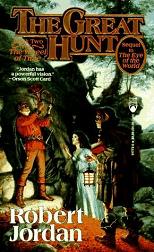Sorry for “cheating”yesterday and only posting a book review; some days blogging just isn’t on the cards. Don’t know what it is, but it might just be the onset of flu season. Fortunately for us, at Making Light Jim MacDonald Who is an EMT in real life has some advice on how to deal with flu, (get your doctor to get you a flu shot if you’re at risk!) including a guide to washing hands:
1) Turn on the water and get it to a temperature you like.
2) Lather up using soap. (Soap does not kill germs in the time that the germs are exposed during hand washing. There’s stuff that grows fine on a bar of soap. The surfactant action of soap helps the running water flush the germs away. That’s how it works. It’s purely mechanical. Antibacterial soap is a waste of time and money, and just helps breed antibiotic-resistant bugs.)
3) Rub your hands vigorously together, paying special attention to the fingernails, getting up onto the wrists, for as long as it takes you to sing one stanza of The Star Spangled Banner or two verses of Little Mattie Groves.
4) Rinse off the soap with the running water.
5) Dry your hands with a paper towel.
6) Use the expended paper towel to turn off the water.
Which is all very well, but does not work so good when the toilets at work do not have paper towels, but one of those cloth towel dispenser thingies with the towel on a loop, so hence you need to use your elbow to turn off the tap. Also, no soap, just some liquid gunk of obscure provenance. Not to mention cow-orkers you hear peeing, you hear flushing, you hear leaving the toilets, but who you not hear washing their hands… For some reason, there a lot of those around in IT.

